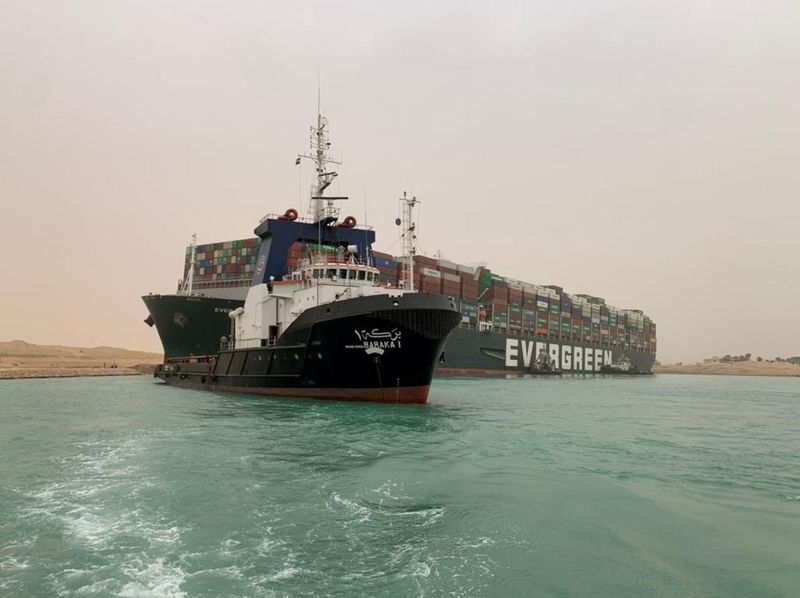By Alex Lawler
LONDON (Reuters) - Oil rose more than 1% on Wednesday after a ship ran aground in the Suez Canal raising supply concerns, although fears of a slow recovery in demand due to European lockdowns limited gains.
Ships in the Suez Canal were being diverted to an older channel on Wednesday after a large container ship ran aground, blocking vessels passing through one of the world's most important waterways.
"Price support is coming courtesy of a transport blockage," said Stephen Brennock of oil broker PVM. "Yet market sentiment will likely struggle to shake off its newfound bearish trend."
Brent crude rose $1.19, or 2%, to $61.98 a barrel by 0903 GMT, after tumbling 5.9% the previous day. West Texas Intermediate (WTI) also climbed $1.19, or 2.1%, to $58.95, having lost 6.2% on Tuesday.
"The potential disruption to supplies has lifted prices," said Jeffrey Halley of brokerage OANDA, referring to the Suez incident. "The reprieve seems temporary, though."
Oil has recovered from historic lows reached last year as OPEC and its allies made record output cuts. But both benchmarks touched their lowest since February on Tuesday, hit by worries over the pace of economic and demand recovery.
Germany, Europe's biggest oil consumer, extended its lockdown to April 18. Italy, France and other European countries have also re-imposed movement restrictions.
Adding to downward pressure, {{8849|U.S. crcrude oil inventories jumped by 2.9 million barrels last week, according to trading sources citing data from industry group the American Petroleum Institute.
The official U.S. supply report is due at 1430 GMT from the Energy Information Administration (EIA). Analysts expect crude stocks to decline by about 300,000 barrels.

OPEC and its allies, known as OPEC+, meet on April 1 to consider whether to unwind more of their output cuts. Given the latest price drop, the prospect of further easing is "zero at this stage," Halley of ONADA said.
